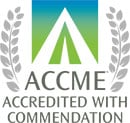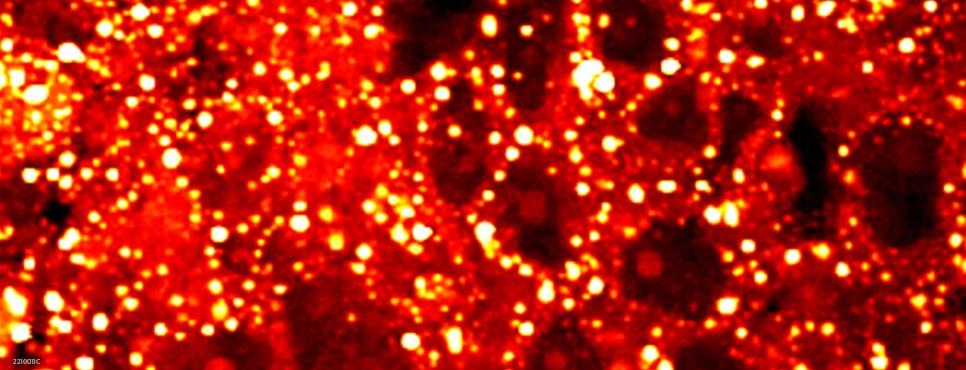Continuing Medical Education (CME)

Accreditation Statement
The American Association for Cancer Research (AACR) is accredited by the Accreditation Council for Continuing Medical Education (ACCME) to provide continuing medical education activities for physicians.
Credit Designation Statement
AACR has designated this live activity for a maximum of 18.25 AMA PRA Category 1 Credit(s)™.
Physicians should only claim credit commensurate with the extent of their participation in the activity.
Credit certification for individual sessions may vary, dependent upon compliance with the ACCME Accreditation Criteria. The final number of credits may vary from the maximum number indicated above.
Claiming CME Credit
Physicians and other health care professionals seeking AMA PRA Category 1 Credit(s)TM for this live continuing medical education activity must complete the online CME Request for Credit Survey by April 30, 2023. Certificates will only be issued to those who complete the survey. Tour CME certificate will be sent to you via email after the completion of the activity.

Successful completion of this CME activity, which includes participation in the evaluation component, enables the participant to earn up to 18.25 Medical Knowledge MOC points in the American Board of Internal Medicine’s (ABIM) Maintenance of Certification (MOC) program. Participants will earn MOC points equivalent to the amount of CME credits claimed for the activity. It is the CME activity provider’s responsibility to submit participant completion information to ACCME for the purpose of granting ABIM MOC credit.
To receive ABIM MOC, participants must request MOC in the CME Request for Credit Survey and complete all questions. Once these steps are completed, AACR will submit your completion information via the ACCME’s Program and Activity Reporting System for the purpose of granting MOC points.
Statement of Educational Need, Target Audience, and Learning Objectives
Prostate cancer is the second most common cancer in American men. In the U.S. alone, there will be an estimated 174,650 new cases of prostate cancer and 31,620 deaths due to the disease. The probability of developing prostate cancer increases dramatically for men over 40 years of age. About 60% of all prostate cancer cases are diagnosed in men 65 years of age and older, and 1 in 41 men will die of prostate cancer. In addition to increasing age, race and family history/genetics are risk factors.
Prostate-specific antigen was introduced in the mid-1980s as a diagnostic marker for prostate cancer. With the advent of this change in standard prostate cancer screening there was a rapid increase in the number of cases diagnosed. Incidence has stabilized since the mid-1990s and death rates have decreased. Controversy continues to surround the use of routine PSA screening because it has led to overdiagnosis and overtreatment. However, recent advances in technology and new insights into genetic susceptibility, pathogenesis of aggressive versus slow-growing prostate cancer, biomarkers, precision medicine, and immunotherapy have the potential to have a major impact in how the disease is detected and treated in each patient. Additionally, the emergence of machine learning and artificial intelligence as well as the use of real-world data have the potential to redefine how prostate cancer is detected, diagnosed, and treated.
Given the potential for these emerging approaches and technologies to fundamentally reshape the detection, diagnosis, and treatment of prostate cancer, we propose to bring together basic researchers, physicians, clinician-scientists, computer scientists, and others to discuss the latest advances in our understanding of prostate cancer. A goal of the conference is to educate physicians and health practitioners about how they can apply these advances to improve prevention strategies, risk assessment, screening guidelines, disease management, and treatment.
After participating in this CME activity, physicians should be able to:
- Identify novel therapeutic strategies and drug targets that are in development and their potential applications in clinical settings.
- Explain advances in using genomic and epigenomic data to guide treatment and predict risk.
- Identify novel model systems being developed to define prostate cancer subtypes.
- Critically assess recent advances in the early detection and diagnosis of prostate cancer and their application to the clinic
- Explain the challenges and opportunities of immunotherapy for prostate cancer.
Disclosure Statement
It is the policy of the AACR that the information presented at AACR CME activities will be unbiased and based on scientific evidence. To help participants make judgments about the presence of bias, AACR will provide information that Scientific Program Committee members and speakers have disclosed about financial relationships they have with ineligible companies whose primary business is producing , marketing, selling, re-selling, or distributing healthcare products or services used by or on patients. All of the relevant financial relationships for these individuals have been mitigated.
Acknowledgment of Financial or Other Support
The AACR gratefully acknowledges the following commercial supporters:
- AstraZeneca
- Janssen Biotech
- Pfizer
- Novartis
- Merck
- Astellas
Questions about CME?
Please read our frequently asked questions. If you still have questions, please contact the Office of CME at (215) 440-9300 or [email protected].
